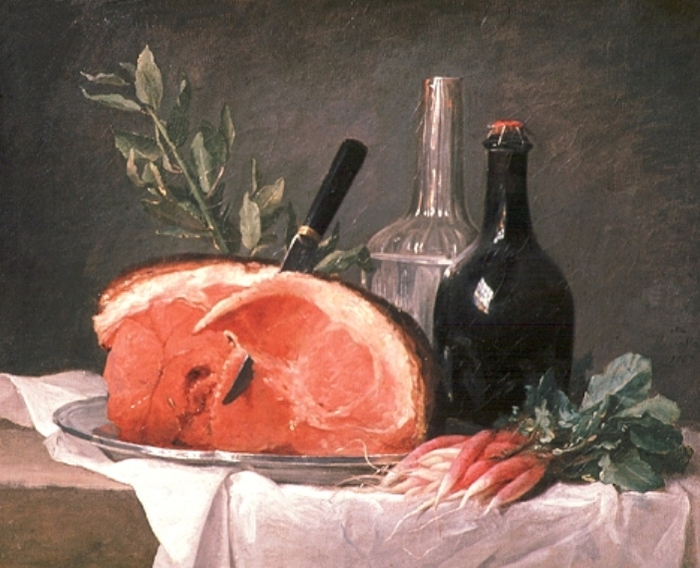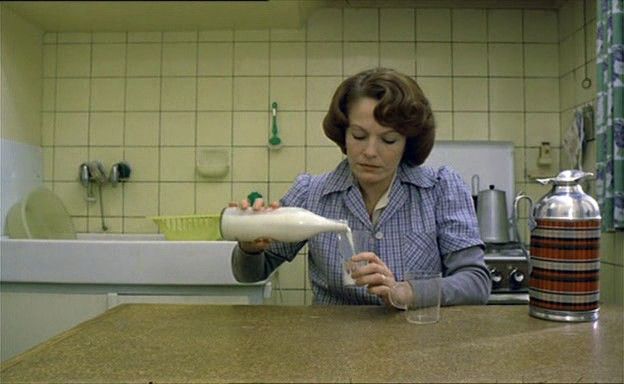013 ArchivesCenters for Disease Control and Prevention (CDC) can't stop microbes from mutating and becoming resistant to even our strongest drugs. But it is working harder than ever to come up with an effective containment strategy to stop the spread of these lethal bacteria.
In 2017, the CDC's Antibiotic Resistance Laboratory collected 5,776 "highly resistant" germs from all 50 states in the U.S. and Puerto Rico. Of these, 221 had evolved to carry a rare and formidable resistance gene. These are "nightmare bacteria"; bugs that are extremely difficult to treat, or can't be treated at all.
Doctors have worried about them and predicted their development for years, as bacteria become accustomed to current generations of antibiotics.
SEE ALSO: Doctors find virus in a pond, use it to destroy antibiotic-resistant bacteria in man's heartAs might be expected, the CDC is spooked by these bacteria. If they spread, as infections are want to do, the agency is tasked with stopping them, and that's no easy task.
On April 3, CDC Principal Deputy Director Anne Schuchat announced the agency's latest containment strategy, which recommends an aggressive response to the appearance of even a single case of drug-resistant infection. The germs usually appear in hospital settings, so the CDC says health care workers should be prepared to contain the drug-resistant microbes before they can travel beyond a hospital's doors.
"When there’s a fire somebody needs to put it out," said Schuchat.
At present, these "nightmare" germs are still rare and haven't yet spread widely. But Schuchat said they're still a threat.
"The bottom line is that resistance genes with the capacity to turn regular germs into nightmare bacteria have been introduced into many states," Schuchat said.
"When there’s a fire somebody needs to put it out," said Schuchat.
Preparing hospitals everywhere to contain the spread of nightmarish pathogens is necessary because the failures of antibiotic drugs to treat these bacterial infections isn't just a problem now. It will also be a problem in the future.
"With antibiotics, unlike other drugs, their efficacy goes down," Eili Klein, an antimicrobial resistance researcher at John Hopkins Medicine, said in an interview. "Even the strongest penicillin from 50 years ago is less effective than it is now."
Most, but not all, of highly-resistant bacteria are found in hospital settings, but if they get out, there might be little treatment recourse.
"The average person on the street is perhaps unaware of the clinical difficulty with resistant bacteria," Shahriar Mobashery, a biochemist who researches antibiotic resistance at the University of Notre Dame, said in an interview.
Via Giphy"People assume that there's always treatment," he said. "But that's not necessarily true. It's not a fact that we can bank on."
At the CDC announcement, Schuchat spoke about what effective containment looks like. She gave the example of medical workers at a nursing home in Iowa who found a patient suffering from a urinary tract infection with "unusual resistance."
Curiously, the patient had not recently visited a hospital nor had surgery, and had spent years in the same nursing home. The bug, it seemed, may have come from inside the nursing home itself.
A containment team, wearing gloves and gowns, tested 30 other patients -- none with symptoms -- and found the germ had spread to five other people. Understanding exactly who carried the resistant bacteria allowed the health officials to contain the germ therein, said Schuchat. The rare bug never left the nursing home.
The CDC's containment plans don't rely upon any novel technologies; but they require vigilance. Health care workers must know how to identify resistant bugs, and any unusual germs must be promptly sent out to local or state testing labs. This may sound like simple, or even obvious protocols, but the CDC is taking it seriously. "Antibiotic-resistant germs can spread like wildfire," their report reads.
The troubling irony here is that humanity is creating its own potential nightmare.
"The root of all resistance is the misuse of antibiotics," said Klein. This means overexposing microbes, which can be quick to adapt, to our limited drug options. This is predominantly done through the misuse of antibiotics.
"Bacteria doesn’t distinguish between appropriate and inappropriate use," said Klein. Both exposures add to bacterial resiliency, and in some cases, the creation of nightmarish superbugs.
"I’m assuming they’re calling it nightmare bacteria because these are the infections keeping people up at night," said Klein. "Those nightmare scenarios where you can’t treat anybody."
 Australia vs. India 2024 livestream: Watch 5th Test for free
Australia vs. India 2024 livestream: Watch 5th Test for free
 In Which Robert Walser Translates Paul Verlaine (Kind of...)
In Which Robert Walser Translates Paul Verlaine (Kind of...)
 Remembering Bill Becker, a Loyal Friend of The Paris Review
Remembering Bill Becker, a Loyal Friend of The Paris Review
 Translation and Virginity by Damion Searls
Translation and Virginity by Damion Searls
 Best Soundcore by Anker Space A40 earbuds deal: Save $35 at Amazon
Best Soundcore by Anker Space A40 earbuds deal: Save $35 at Amazon
 Elena Ferrante Wants You to Know She Is Not a Man
Elena Ferrante Wants You to Know She Is Not a Man
 The Most Misread Poem in America
The Most Misread Poem in America
 Big, Bent Ears, Chapter 9: Surrender to the Situation, Part 2 by Nicole Rudick
Big, Bent Ears, Chapter 9: Surrender to the Situation, Part 2 by Nicole Rudick
 Over 25 beauty deals under $25 to shop during Amazon's Big Spring Sale
Over 25 beauty deals under $25 to shop during Amazon's Big Spring Sale
 “Masquerade,” the Puzzle Book That Unhinged a Nation
“Masquerade,” the Puzzle Book That Unhinged a Nation
 Best free ChatGPT courses
Best free ChatGPT courses
 An Absolute Truth: On Writing a Life of Coltrane
An Absolute Truth: On Writing a Life of Coltrane
 Alice in a World of Wonderlands: Translating Lewis Carroll
Alice in a World of Wonderlands: Translating Lewis Carroll
 The Psychedelic Effects of Video Games
The Psychedelic Effects of Video Games
 The White House might have inflated Trump's golf record, because this is how we live now
The White House might have inflated Trump's golf record, because this is how we live now
 On Ham, Eternity, and a Quotation of Dorothy Parker’s
On Ham, Eternity, and a Quotation of Dorothy Parker’s
 On Blood Moons and Singing in Public
On Blood Moons and Singing in Public
 Feminist Filmmaker Chantal Akerman Has Died at Sixty
Feminist Filmmaker Chantal Akerman Has Died at Sixty
 Best AirPods deal: Apple AirPods 4 for $99.99 at Amazon
Best AirPods deal: Apple AirPods 4 for $99.99 at Amazon
 An Absolute Truth: On Writing a Life of Coltrane
An Absolute Truth: On Writing a Life of Coltrane
Whiting Awards 2020: Andrea Lawlor, FictionWhiting Awards 2020: Genya Turovskaya, PoetryOn Minor Feelings by Cathy Park Hong197,539 B.C. by Jeffrey YangToys under $20 at Amazon — Dec. 2023 dealsRedux: Film Is Death at Work by The Paris ReviewHow to watch Gophers vs. BGSU football livestreams: kickoff time, streaming deals, and moreHow to Leave Your Lover with Lemons by Chantel TattoliLong Weekend by Michael DeForgePoetry Rx: Poems for Social Distancing by Claire SchwartzWordle today: The answer and hints for December 27CES 2024: 3 wild TV trends we're expecting to seeEx texting you over the holidays? You're being 'Marleyed'Wordle today: The answer and hints for December 27Whiting Awards 2020: Andrea Lawlor, FictionLearning Ancientness Studio: An Interview with Jeffrey Yang by Lauren KaneNational Treasure, Elizabeth Spencer by Allan GurganusW. H. Auden Was a Messy Roommate by Seamus PerryApple Music Replay 2023: How to get yoursRedux: Film Is Death at Work by The Paris Review William Gass & Eurovision Have At Least One Thing in Common In Chekhov‘s 200 Apply to Be The Paris Review‘s Next Writer Watch Anthony Burgess on the Dick Cavett Show, 1971 In Alec Soth's New Photographs, a Fresh Take on Public Space Staff Picks: Silvina Ocampo, Gary Shteyngart, Brian Turner Trying to Inject Meaning Into the Daily Grind Mark Twain’s Advice for Curing a Cold Why “Junket Is Nice” Is One of the Weirdest Children’s Books Strife in the Fast Lane Interviewing Philip Levine: A Remembrance Why Do We Personify the Weather? Victor Moscoso on Zap Comix, Learning, and Unlearning The Red Carpet: Last Bastion of Psychiatry Staff Picks: Walser, Verhoeven, Lead Belly, and More In Which George du Maurier Feels Neglected By His Mom Karl Ove Knausgaard and Television in America Stevie Smith’s Eccentric Reading Style Novels Are Made of Words: Moby Need the Right Description? Let the Mustache Be Your Guide
3.3199s , 10138.921875 kb
Copyright © 2025 Powered by 【2013 Archives】,Exquisite Information Network